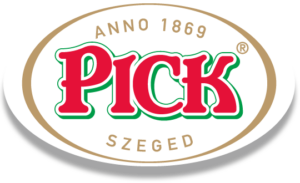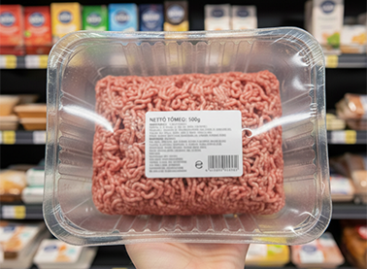Pick Szeged Zrt. is further reducing its use of packaging materials.
Pick Szeged Zrt. will reduce the amount of plastic used for packaging by another 14 percent, and from the end of January, after sliced Pick salamis, Herz hams will also be on the shelves in smaller tray sizes and in renewed packaging – the food industry company belonging to the Bonafarm group informed MTI on Wednesday.

The packaging of Herz hams is 3 centimeters smaller, has a viewing window and can be resealed, which means another 14 percent reduction in plastic. According to the announcement, Pick Szeged Zrt. has been reducing the amount of plastic used in its packaging since 2018. The annual use of plastic packaging material was reduced by 60 tons in two years, thanks to the fact that the company reduced the thickness of the foil used for packaging sliced products by almost a quarter. By the first quarter of 2022, the size of most sliced Pick salami trays available in stores became smaller by 3 centimeters, which further reduced the amount of plastic used for packaging by 14 percent. The announcement quoted Adrienn Haluska, Bonafarm’s operational quality management and product development director, who stated that the weight of the plastic packaging materials used was reduced by an additional 100 tons last year, after the previous 60 tons, thanks to the optimization of the tray sizes. Thanks to the smaller tray size, about 200 tons less paper was used for the collective packaging of the products each year. In parallel with the amount of plastic used, the amount of paper packaging used for transport also decreases, which in the case of Herz hams results in an additional 26 tons of paper savings this year.
Sustainability and automation
In recent years, Pick Szeged Zrt. has made investments worth about HUF 1.7 billion at its sites in Szeged, Alsómocsolád and Baja in order to make its sustainability and automation efforts feasible. In addition to reducing plastic, the new ham slicing and packaging lines also result in a significant improvement in efficiency and quality. In addition, the Bajaj plant also operates a camera quality control system. At the company’s Szeged salami plant, which is currently under construction, special attention is also paid to sustainability aspects, so a solar panel system is installed on the roof of the new unit, thereby reducing the energy demand purchased from the external electricity grid by 750 megawatt hours (MWh). And thanks to the energy-efficient engineering solutions, it will be able to cover about half of the building’s thermal energy needs from the generated waste heat.
Based on the first half-year report published on the BÉT website in September last year, Pick Szeged Zrt. improved its result compared to the same period in 2021, despite the rise in raw material and energy prices. The company’s pre-tax profit increased by HUF 197 million to HUF 4.847 billion in the first half of the year. The company produced 18.2 thousand tons of meat products – 4.5 thousand tons of moldy salami, 2.2 thousand tons of mold-free dry goods, and 11.5 thousand tons of butcher’s goods, bacon and ham – 1400 tons less than in the first half of 2021. Despite the slight decrease in volume, its net revenue from sales increased by more than 8 percent to HUF 35.93 billion. 25.5 percent of the revenue, HUF 9.174 billion, came from exports.
MTI
Related news
Five WorldStar Packaging Awards 2026 for Rondo!
🎧 Hallgasd a cikket: Lejátszás Szünet Folytatás Leállítás Nyelv: Auto…
Read more >Oversized packaging not only deceives the customer, but also violates the principles of the circular economy
🎧 Hallgasd a cikket: Lejátszás Szünet Folytatás Leállítás Nyelv: Auto…
Read more >MFB Director: Interest-free loans worth HUF 39 billion will help businesses develop energy efficiency
🎧 Hallgasd a cikket: Lejátszás Szünet Folytatás Leállítás Nyelv: Auto…
Read more >Related news
II. Green Gastronomy – Marketing Communication Workshop organized by the MMSZ HoReCa and Green Section
🎧 Hallgasd a cikket: Lejátszás Szünet Folytatás Leállítás Nyelv: Auto…
Read more >









